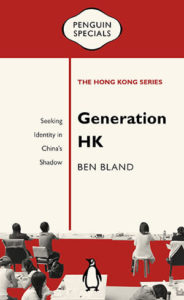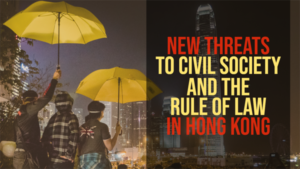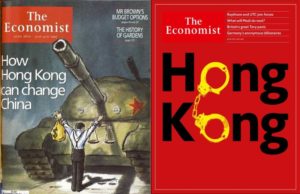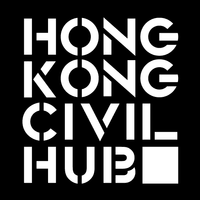The idea of Chinese tanks rolling into Hong Kong would have been unthinkable only a few months ago. But as the Asian financial centre enters its third month of protests triggered by an unpopular extradition law, Beijing and its supporters have made pointed references to the possibility of a military intervention, The Financial Times reports:
The People’s Liberation Army could legally intervene to help Hong Kong to “maintain social order” if requested to do so by the territory’s government, Wu Qian, China’s defence ministry spokesman, said last week. “The Chinese garrison in Hong Kong, rather like the British garrison here before 1997, is not meant to be token, ceremonial or symbolic,” CY Leung, Hong Kong’s former chief executive, wrote in a letter to the Financial Times, in a reminder of the combat-readiness of the 6,000 troops stationed in the territory.
 “Reminding Hong Kongers of the PLA’s legal right to intervene looks like an attempt to scare protesters into backing down,” said Ben Bland, a Lowy Institute research fellow and author of Generation HK: Seeking Identity in China’s Shadow. “Deploying the PLA would be the nuclear option for Hong Kong.”
“Reminding Hong Kongers of the PLA’s legal right to intervene looks like an attempt to scare protesters into backing down,” said Ben Bland, a Lowy Institute research fellow and author of Generation HK: Seeking Identity in China’s Shadow. “Deploying the PLA would be the nuclear option for Hong Kong.”
Three ongoing confrontations between civil society and governments with their security forces – in Algeria, Sudan and Hong Kong – help to explain why governments are so worried about civil society, argues analyst Marina Ottaway.
“In all of these cases, protests could be brought quickly to an end by violent means, as the Chinese government did in Tiananmen Square in 1989,” she writes. “But there are limits to the power of governments, as well: Civil society is always there, no matter how many people are killed or how many organisations are dismantled.”
 China signaled Monday that it wants a political rather than a military solution to the increasingly violent protests in Hong Kong, apparently putting the onus for dealing with the unrest squarely on the city’s embattled leader, The Washington Post reports.
China signaled Monday that it wants a political rather than a military solution to the increasingly violent protests in Hong Kong, apparently putting the onus for dealing with the unrest squarely on the city’s embattled leader, The Washington Post reports.
Joshua Wong, the student activist who shot to fame during Hong Kong’s Umbrella Movement protests five years ago, said the U.S. government should suspend sales of riot gear to the city to prevent human-rights abuses as the weeks-long demonstrations intensify, Bloomberg adds (HT: FDD).
 This weekend, Hong Kong saw fierce clashes between protesters and police, who for the first time this summer had refused to approve the gatherings, China Digital Times notes.
This weekend, Hong Kong saw fierce clashes between protesters and police, who for the first time this summer had refused to approve the gatherings, China Digital Times notes.
Beyond the protest movement’s original cause—opposition to now-suspended extradition rules—and a subsequent host of related issues, the most recent demonstrations were part of a backlash against an indiscriminate attack by white-shirted men at Yuen Long MTR station on July 21, in which 45 people were injured. The failure of police to defend the victims, and suspicions of official collusion with the attackers, have further fueled antagonism between the two sides.
 China has blamed western powers for the protests in Hong Kong but has placed responsibility for dealing with the pro-democracy protests firmly on the shoulders of Carrie Lam, the chief executive, The [London] Times reports:
China has blamed western powers for the protests in Hong Kong but has placed responsibility for dealing with the pro-democracy protests firmly on the shoulders of Carrie Lam, the chief executive, The [London] Times reports:
[One official] restated claims that foreign forces — by implication Britain and the US — were manipulating the situation to undermine China. “Hong Kong is China’s Hong Kong,” he said…. The Global Times, the state-run Chinese newspaper, accused Washington of inciting the unrest through its National Endowment for Democracy, which provided funding and expertise.
“Without the funding, technical support, political and legal pressures, and even on-site guidance by US-led outside forces, how can Hong Kong opposition forces have enough political energy and power to make such scenes in Hong Kong?” an editorial read.







